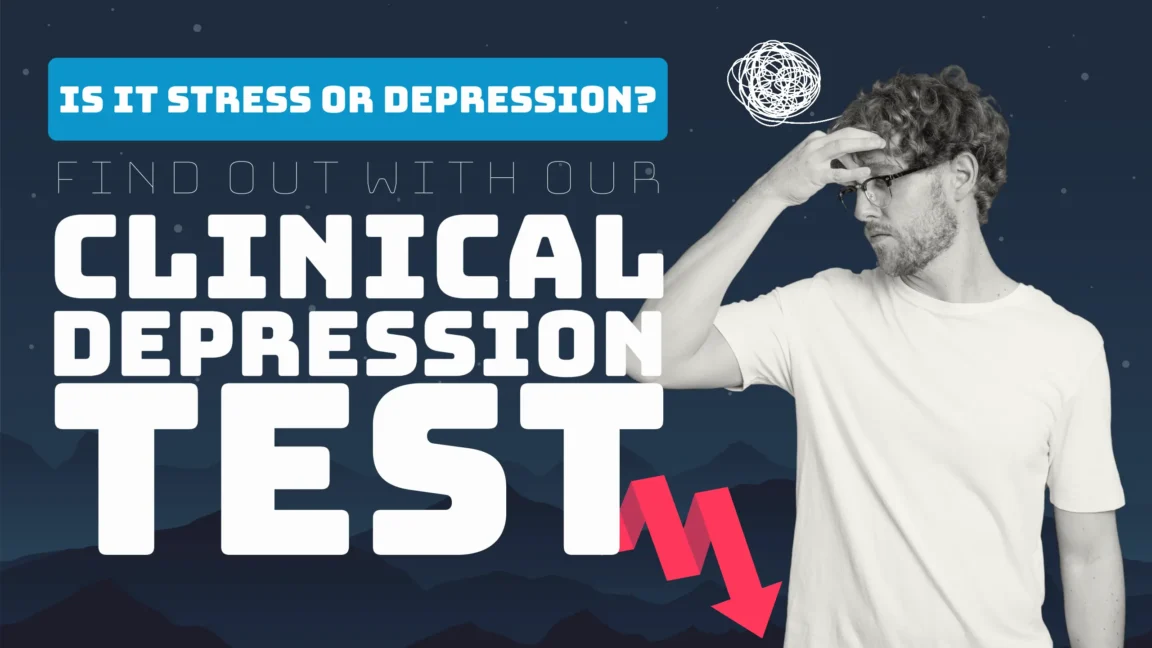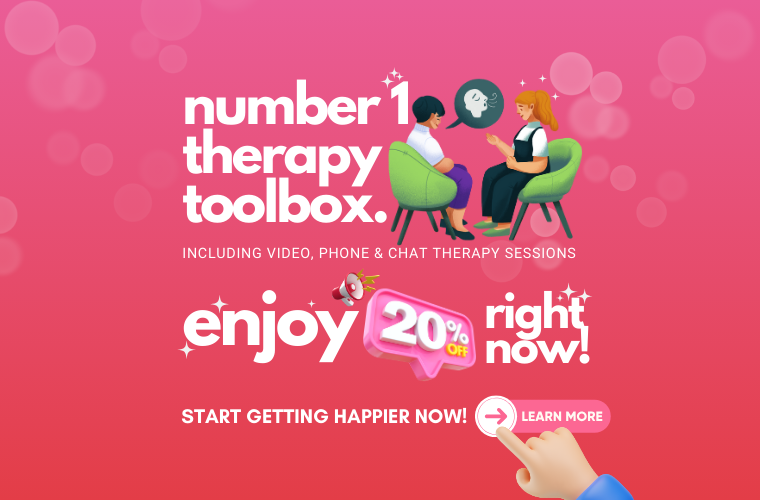Clinical Depression Test: Find Your Way Back to Happiness
Feeling down or blue sometimes is a part of life, but when these feelings linger, they could be signs of clinical depression. Like you’re stuck in a dark tunnel with no light in sight. But what if you could find a small flashlight to guide you through? This Clinical Depression Test is here to help you take that first step – to grasp better what you’re feeling and to start finding the help you might need.
What Is Clinical Depression?
Clinical depression isn’t just about feeling sad. A deeper, more persistent state can feel like an overwhelming wave, washing away your energy, motivation, and joy. It’s more than a bad day; it’s like a thick cloud that doesn’t lift, affecting everything from how you think and feel to how you handle daily activities.
Why Take The Clinical Depression Test?
This test isn’t just a bunch of questions; it’s a mirror to reflect on your recent feelings and experiences. A conversation starter with yourself about your mental health: taking this test can be the first step in acknowledging there might be an issue, which is often the most challenging but crucial step.
How the Test Works
Our clinical depression test consists of 15 questions, each with multiple-choice answers ranging from “Never” to “Very Often.” Your responses will give you insight into whether your symptoms align with those of clinical depression. This is like having a map to understand the terrain of your emotions.
Expert Insight
Dr. Carol Goodheart, a renowned psychologist, emphasizes the importance of such self-assessment tools. According to her, “Self-awareness is the first step in healing. Tools like this test help individuals recognize patterns in their feelings and behavior, which is crucial in seeking professional help.” This test is designed with inputs from experts like Dr. Goodheart to ensure it resonates with your experiences.
Scoring is assigned as follows:
- Never: 0 points
- Rarely: 1 point
- Sometimes: 2 points
- Often: 3 points
- Very Often: 4 points
Scoring System
- 0-10 Points: Minimal or No Depression
- 11-20 Points: Mild Depression
- 21-30 Points: Moderate Depression
- 31-40 Points: Moderately Severe Depression
- 41-60 Points: Severe Depression
Interpreting Your Test Results
The total score will fall into one of five categories, each indicating a different severity level. The second paragraph of each category will offer detailed advice and recommendations for improvement tailored to your specific score range.
Recommendations to Prevent it:
Based on your score, we provide personalized tips to help you regain control of your mental health. Whether seeking a mental health professional, engaging in physical activity, or exploring mindfulness, these suggestions are your stepping stones to a brighter path.
Important Note:
Remember, this test is not a substitute for a professional diagnosis. It’s a preliminary tool, like a compass pointing towards the direction you might need to go. For an accurate diagnosis of depression, consulting a healthcare provider is crucial.
Instructions:
Take your time with each question, reflecting on how you’ve felt over the past few weeks. Answer as honestly as possible for the most accurate results. Think of it as having a heart-to-heart with a friend.
Disclaimer
The clinical depression test is for informational purposes only and is not a diagnostic tool. It cannot replace the expertise of a mental health professional. Always consult a healthcare provider for a comprehensive evaluation.
You can also take these related personality screening tests.
- Question of
How often have you felt little interest or pleasure in doing things?
- Never
- Rarely
- Sometimes
- Often
- Very Often
Correct Wrong
- Question of
How frequently have you felt down, depressed, or hopeless?
- Never
- Rarely
- Sometimes
- Often
- Very Often
Correct Wrong
- Question of
Have you experienced trouble falling or staying asleep or sleeping too much?
- Never
- Rarely
- Sometimes
- Often
- Very Often
Correct Wrong
- Question of
How often do you feel tired or have little energy?
- Never
- Rarely
- Sometimes
- Often
- Very Often
Correct Wrong
- Question of
How regularly do you experience poor appetite or overeating?
- Never
- Rarely
- Sometimes
- Often
- Very Often
Correct Wrong
- Question of
Do you often feel bad about yourself – or that you are a failure or have let yourself or your family down?
- Never
- Rarely
- Sometimes
- Often
- Very Often
Correct Wrong
- Question of
How frequently do you have trouble concentrating on reading or watching television?
- Never
- Rarely
- Sometimes
- Often
- Very Often
Correct Wrong
- Question of
Have your movements or speech been so slow that others could have noticed? Or the opposite – being so fidgety or restless that you have been moving around more than usual?
- Never
- Rarely
- Sometimes
- Often
- Very Often
Correct Wrong
- Question of
How often do you have thoughts that you would be better off dead or hurting yourself in some way?
- Never
- Rarely
- Sometimes
- Often
- Very Often
Correct Wrong
- Question of
Do you often feel nervous, anxious, or on edge?
- Never
- Rarely
- Sometimes
- Often
- Very Often
Correct Wrong
- Question of
How frequently do you not feel able to stop worrying or control worrying?
- Never
- Rarely
- Sometimes
- Often
- Very Often
Correct Wrong
- Question of
Do you often get irritated or annoyed over seemingly minor things?
- Never
- Rarely
- Sometimes
- Often
- Very Often
Correct Wrong
- Question of
How regularly do you feel afraid, as if something awful might happen?
- Never
- Rarely
- Sometimes
- Often
- Very Often
Correct Wrong
- Question of
How often do you feel disconnected from yourself or your surroundings?
- Never
- Rarely
- Sometimes
- Often
- Very Often
Correct Wrong
- Question of
How frequently do you dwell on the past or worry about the future?
- Never
- Rarely
- Sometimes
- Often
- Very Often
Correct Wrong


